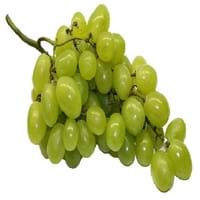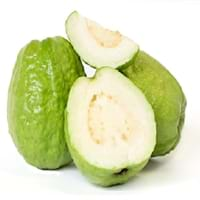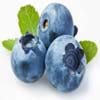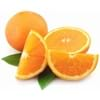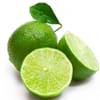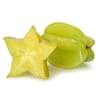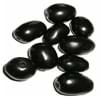Health Benefits
Cancer prevention, Kidney stone treatment, Prevents constipation, Treatment of alzheimer's disease
Cancer prevention, Diarrhea treatment, Prevents constipation, Scurvy treatment, Treatment of dysentary
General Benefits
Digestive aid, Improves eye vision, Maintains healthy cholesterol level, Treatment of migraine
Controls blood pressure, Cures cough, Improves eye vision, Maintains healthy cholesterol level, Treatment of common cold
Skin Benefits
Anti-aging benefits, Heals sunburn, Skin rejuvenation, Treatment of dark spots
Anti-aging benefits, Brightens and lightens complexion, Hydrates skin, Treatment of skin diseases
Hair Benefits
Prevents hair loss, Regulates hair growth, Treatment of dandruff
Prevents hair loss
Allergy Symptoms
Anaphylaxis, Asthma, Breathing difficulty, Coughing, Drop in blood pressure, Hives, Skin rash, Stuffy nose, Swelling of mouth, tongue or lips, Wheezing
Breathing difficulty, Coughing, Runny nose, Sneezing, Swelling of mouth, tongue or lips, Wheezing
Side Effects
Allergic reaction, Skin rash, Might slow down the process of blood clotting
Hair thinning, Nail thinning, Skin problems, Tooth decay, Weakness, Possibly unsafe during pregnancy
Best Time to Eat
As a snack in the late afternoon, Don't consume at night and before bed, Eat the fresh ones, avoid mixing with any other foods, don't eat after meal., Morning time (before lunch)
As a snack in the late afternoon, Don't consume at night and before bed, Eat the fresh ones, avoid mixing with any other foods, don't eat after meal., Morning time (before lunch)
Vitamin B5 (Pantothenic Acid)
Vitamin C (Ascorbic Acid)
Vitamin K (Phyllochinone)
Phytosterol
Not Available
Calories in Fresh Fruit with Peel
Calories in Fresh Fruit without Peel
Not Available
Not Available
Calories in Frozen Form
Not Available
Type
Berry
Tree fruit, Tropical
Season
Autumn, Summer
All seasons
Varieties
Cabernet Sauvignon, Merlot, Pinot Noir, Syrah/Shiraz and Zinfandel
Lucknow 49, Allahabad Safeda, Chittidar, Harijha, Apple guava, Hafshi, Arka Mridula and Allahabad Surkha
Color
Green, Red
Green, Pink, Yellow
Inside Color
Light Green
White
Taste
Sweet-Sour
Sweet-Sour
Origin
Western Asia, Central Europe
Central America, Mexico, South America
Soil Type
Clay loam, Sandy loam
Loam, Rocky, Sandy
Climatic Conditions
Warm
Sunny
Facts about
- If left alone, a grapevine can spread 50 feet and even more.
- There are more than 8,000 varieties of grape worldwide.
- They are available in 7 different colors: red, green, white, black, purple, blue and golden.
- The black pigment in Guava leaves is used for textile applications.
- Guava leaves are used to make tea.
- Oils extracted from guava seeds are used in various cosmetics.
- Guava wood is used for decorative purposes.
Other Countries
Argentina, Armenia, Australia, Chile, France, Iran, Italy, Portugal, Romania, Turkey, United States of America
China, Indonesia, Mexico, Nigeria, Pakistan, Philippines, Thailand
Top Importer
United States of America
Canada
Botanical Name
Vitis vinifera
Psidium guajava
Synonym
Not Available
Not Available
Subkingdom
Tracheobionta
Tracheobionta
Division
Magnoliophyta
Magnoliophyta
Class
Magnoliopsida
Magnoliopsida
Family
Vitaceae
Myrtaceae
Species
Vitis vinifera
Psidium guajava
Generic Group
Grape
Myrtle
Compare Grape and Guava
It is important compare Grape and Guava as both the fruits have a different nutritional value. Their comparison can be done on the basis of their vitamin and mineral content, calories, benefits as well as characteristics, making it easier for us to choose the best fruit for our diet. Their general health benefits are as follows:
Grape Benefits: digestive aid, improves eye vision, maintains healthy cholesterol level and treatment of migraine.
Guava Benefits: controls blood pressure, cures cough, improves eye vision, maintains healthy cholesterol level and treatment of common cold.
Fruits are also used as a remedy for various hair problems. The hair benefits of Grape are: prevents hair loss, regulates hair growth and treatment of dandruff and hair benefits of Guava are: prevents hair loss. Some fruits are known to cause allergic reactions. The allergy symptoms of first fruit are: anaphylaxis, asthma, breathing difficulty, coughing, drop in blood pressure, hives, skin rash, stuffy nose, swelling of mouth tongue or lips and wheezing and the symptoms of second fruit are: breathing difficulty, coughing, runny nose, sneezing, swelling of mouth tongue or lips and wheezing. Get sorted Grape vs Guava comparison with the help of fruit comparison tool by fruitvs.com.
